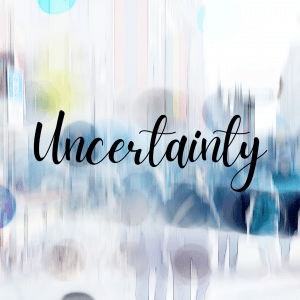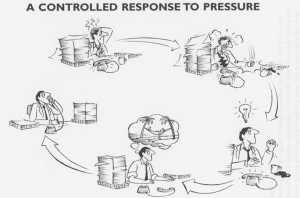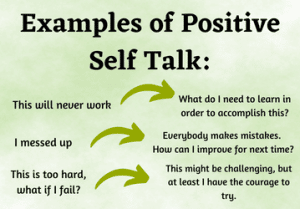 The Cornerstone of Financial Resilience
The Cornerstone of Financial Resilience
The word “resilience,” which is now rather fashionable, was not always fundamental when talking about finances and the financial systems. It appears to have been first introduced in September 2002 after the events 1st September 2001. The Office of the Comptroller of the Currency, and the Securities and Exchange Commission published a reporting advising action on operations to make them more resilient. In other words, introduce things like off-site trading rooms that could be used in an emergency. When we talk about financial resilience we are largely talking about managing risk and planning for a rainy day.
The World Economic Forum defines financial resilience as “the ability to withstand and recover from financial shocks”. Financial planning is the cornerstone of financial resilience, whether you are thinking about personal or business finances.
Finances: One of the Most Common Sources of Stress
The antithesis of financial resilience is financial stress. Finances are one of the most common sources of stress in our lives. In fact, it is ranked as the number one cause of stress in the United States. As a result, many people find themselves struggling to make ends meet, and often turn to debt as a way to cope with this struggle. Like any source of overwhelming stress, financial problems can take a huge toll on your mental and physical health, relationships, and overall quality of life.
Debt is not sustainable for many people and can lead to serious consequences such as bankruptcy or foreclosure on your home. Fortunately, there are ways to get out of debt. If you find yourself struggling with debt, you should consult a professional immediately for help on how to get back on track financially and reduce your stress levels.
Financial struggles, as a business owner, are equally worrying. How will you afford to pay your creditors and your employees? How can you keep afloat until the next invoice is paid? Late payment of invoices is a terrible burden on any business, but particularly onerous for smaller businesses who do not have the cash flow to fall back on.
The stress of financial issues leaves you feeling stressed and anxious. You may find it harder to concentrate or lack the energy to tackle a mounting pile of bills. Or you may lose income by taking time off work due to anxiety or depression. You become trapped in a downward spiral of increasing money problems and declining mental health.
Building Financial Resilience
Whatever your circumstances, there are ways to get through these tough economic times, ease stress and anxiety, and regain control of your finances.
Financial resilience is the ability to withstand and recover from economic shocks, such as sudden unemployment or a reduction in income. Financial resilience is a measure of the capacity of individuals, households, communities, businesses, and countries to withstand economic shocks by maintaining their standard of living and meeting their financial obligations.
The most important part of financial resilience is that it is not just about money. It includes people’s skills and abilities, social connections and networks as well as their confidence in themselves and their future prospects. It also includes having access to essential goods and services that are critical for day-to-day living – health care, education, decent housing, clean water, and sanitation.
Managing Debt 
Professional advice is the best place to start. If you are UK-based then talk to your bank, your citizen’s advice bureau, or an independent financial advisor or use your access to your Employee Assistance Programme if your employer has one. Wherever you live, there are a number of organisations that offer help with dealing with financial problems. These are the sorts of things they can help with:
- Managing debt
- Creating and sticking to a budget
- Finding work
- Communicating with creditors
- Claiming benefits
- Other financial assistance
The most important thing is that you talk to someone! It can be very difficult to go it alone when coping with financial stress. It is also one of those problems, the longer you leave it the more serious it is likely to become. Start by talking to family and friends so they can support you. The first step to financial resilience is overcoming any financial issues.
Not being a qualified financial advisor I am not intending to go any further with advice on how to get your finances back on track. Each case is so very unique, that the best course of action is to seek professional, personal advice.
Creating an Emergency Fund
Achieving financial resilience is a long-term process that requires making changes in your lifestyle and habits. It’s not something you can do overnight or by reading a book. Financial resilience is about whole life planning, not just the now.
The first step to creating an emergency fund is to assess your needs. How much money do you need to cover unexpected expenses? Once you have a number in mind, start setting aside money each month to reach your goal. You can set up a dedicated savings account for your emergency fund. The important thing is to make sure the money is easily accessible in case you need it.
If you have a steady income, setting aside 10% of each paycheck is a good way to build up your emergency fund quickly. You can also look for ways to cut expenses so you can have more money to put towards your fund. Once you have built up your emergency fund, it’s important to keep it replenished so it’s there when you need it.
Extra Protection
It is important for individuals, and businesses to have some form of insurance in place. This may include, but is not limited to considerations of health insurance, property insurance, income protection, and others. I am sure you can think of a few more. Basically building resilience into your financial risk management plans so you are covered in case of illness or loss of earnings.
Building Wealth
 There are many ways to build wealth, but some are more effective than others. One of the best ways to build wealth is to invest in yourself. This means taking the time to learn about financial planning and investing, and then putting that knowledge into action.
There are many ways to build wealth, but some are more effective than others. One of the best ways to build wealth is to invest in yourself. This means taking the time to learn about financial planning and investing, and then putting that knowledge into action.
Another great way to build wealth is to invest in assets that will appreciate over time, such as Stock ISAs. These types of investments can provide you with a steady stream of income, which can help you to build your wealth over time.
Finally, another effective way to build wealth is to live below your means. This means spending less than you earn and investing the difference. By doing this, you can save up a large sum of money over time, which can then be used to invest in assets or to fund your retirement.
There are many ways to build business wealth, but some of the most effective include investing in growth opportunities, diversifying your income streams, and carefully managing expenses. Investing in growth opportunities is a great way to build wealth over time. This could include investing in new products or services, expanding into new markets, or investing in new technologies.
Diversifying your income streams is another smart way to build wealth. This means having multiple sources of income so that if one stream dries up, you still have others to rely on.
Finally, carefully managing expenses is crucial to building wealth. This means monitoring your spending, setting a budget, and making sure you are not overspending on unnecessary items.
Making mistakes, learning from them
There’s no shame in making mistakes. We all do it, and it’s a natural part of learning and growing. The important thing is to not get discouraged and to learn from our mistakes so that we don’t make them again.
When we make a mistake, we can often feel like we’re the only one who has ever made that particular error. But the truth is, everyone makes mistakes. It’s part of being human. What matters is how we respond to our mistakes, and what we learn from them.
If we can keep a positive attitude, and view our mistakes as opportunities to learn and grow, then we’ll be on the right track. Making mistakes is inevitable, but it’s what we do afterward that counts.
Conclusion
Financial Resilience can help you enjoy your now as well as build for your personal and business future
 Why does uncertainty cause stress? Uncertainty causes stress because of the fact that it is the unknown. The only certainty is that life is uncertain! That’s probably a phrase that you have heard more than once, specially recently. We all know it, but do we truly believe it? Do we strive to control the uncontrollable and how can we feel in control in uncertain times?
Why does uncertainty cause stress? Uncertainty causes stress because of the fact that it is the unknown. The only certainty is that life is uncertain! That’s probably a phrase that you have heard more than once, specially recently. We all know it, but do we truly believe it? Do we strive to control the uncontrollable and how can we feel in control in uncertain times? Longer Term Strategies
Longer Term Strategies s through and write down your answers to the above questions. I am sure you know the saying “Do what you have always done and you will get what you have always got!” So do something differently, make a change and you will change the outcome.
s through and write down your answers to the above questions. I am sure you know the saying “Do what you have always done and you will get what you have always got!” So do something differently, make a change and you will change the outcome.



 What is Fomo?
What is Fomo?
 The Resilient Leader
The Resilient Leader
 Emotional Resilience and Stress – What is the Difference?
Emotional Resilience and Stress – What is the Difference?
 How to be Resilient in Difficult Situations?
How to be Resilient in Difficult Situations? The Cornerstone of Financial Resilience
The Cornerstone of Financial Resilience
 There are many ways to build wealth, but some are more effective than others. One of the best ways to build wealth is to invest in yourself. This means taking the time to learn about financial planning and investing, and then putting that knowledge into action.
There are many ways to build wealth, but some are more effective than others. One of the best ways to build wealth is to invest in yourself. This means taking the time to learn about financial planning and investing, and then putting that knowledge into action. Real Resilience
Real Resilience

